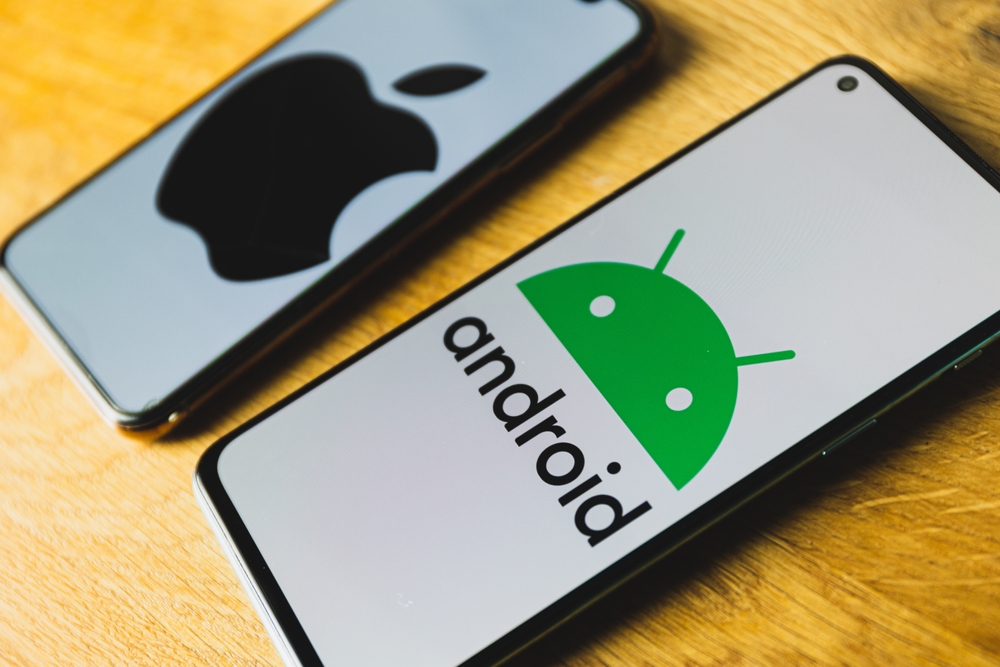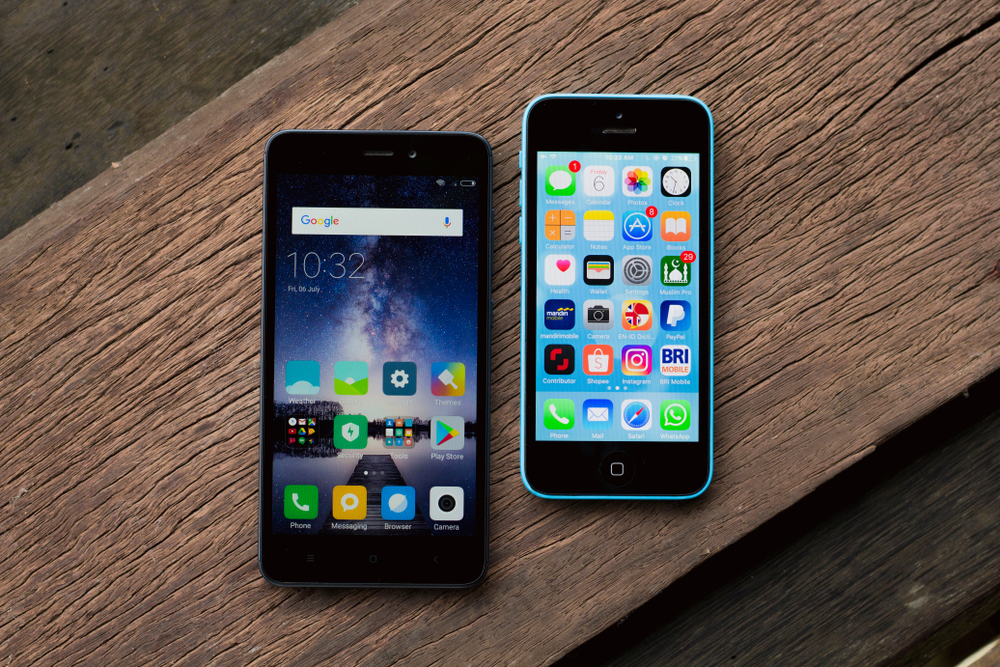
Mastering Mobile App Marketing: Expert Tips for Effective Promotion

Mobile app marketing has become increasingly important in today's digital landscape. With millions of apps competing for attention in app stores, it's crucial for app developers and marketers to effectively promote their mobile applications. In this article, we will provide expert tips on how to master mobile Android or iOS app marketing and increase app downloads and user engagement.
1. Build a solid app foundationBefore diving into marketing your mobile App Store or Google Play app , ensure that your app is of high quality and provides value to users. Polish your app's design, functionality, and user experience to create a positive first impression. Consider conducting beta testing to address any bugs or glitches before launching the app to a wider audience.
2. Identify your target audience
Understanding your target audience is essential for effective app marketing. Analyze your app's purpose, features, and benefits to determine who would find it valuable. Conduct market research and utilize analytics tools to gather insights on user demographics, preferences, and behavior. This information will help you tailor your marketing strategies to reach your target audience more effectively.
3. Optimize your app store presence
Your app's visibility in app stores plays a crucial role in attracting potential users. To optimize your app store presence, focus on the following elements:
a. App title: Choose a concise, descriptive, and memorable app name that reflects its purpose.
b. App description: Craft an engaging and informative description, highlighting unique features and benefits. Utilize relevant keywords to improve discoverability.
c. Screenshots and videos: Include visually appealing screenshots and videos that demonstrate your app's key features. Make sure they are clear, professional, and showcase the app's value.
d. Ratings and reviews: Encourage satisfied users to leave positive reviews and ratings. Respond to user feedback, addressing any concerns or issues promptly.
e. App icon: Design an eye-catching and recognizable app icon that stands out among competitors.
4. Leverage social media platformsSocial media is a powerful tool for app marketing, allowing you to engage with potential users and promote your app organically. Identify which platforms are most popular among your target audience and create compelling content to attract their attention. Share updates, app-related news, tutorials, and user testimonials to generate buzz around your app. Collaborate with influencers or relevant communities to expand your reach further.
5. Implement app store optimization (ASO)
App store optimization is a crucial aspect of mobile app marketing. ASO involves optimizing various elements to improve your app's visibility in app stores' search results. Key ASO strategies include:
a. Keyword optimization: Research relevant keywords that users might search for and incorporate them in your app's title, description, and metadata.
b. Localization: Tailor your app's store listing to different regions and languages to increase its discoverability in specific markets.
c. App updates: Regularly update your app with new features, bug fixes, and enhancements. App stores prioritize apps that are frequently updated.
d. A/B testing: Experiment with different variations of your app's store listing, such as screenshots, descriptions, or icons, to identify which versions perform best.
e. Competitor analysis: Study your competitors' app store presence and identify areas where you can differentiate your app and attract users.
6. Implement app advertising campaignsConsider utilizing app advertising campaigns to reach a wider audience and drive downloads. Popular app advertising options include:
a. Pay-Per-Click (PPC) advertising: Promote your app through platforms like Google Ads, Facebook Ads, or Apple Search Ads. Target relevant keywords and demographics to maximize conversions.
b. In-app advertising: Collaborate with other app developers to display ads within their apps. Choose apps that have a similar target audience for better targeting.
c. Influencer marketing: Partner with influencers or bloggers who cater to your app's target audience. They can create sponsored content or reviews to promote your app to their followers.
d. Cross-promotion: Promote your app through your other apps or partner with non-competing apps that share a similar target audience. This can help increase awareness and downloads.
7. Monitor and optimize performance
Continuous monitoring and optimization are essential for successful app marketing. Track your app's performance using analytics tools to gain valuable insights into user behavior, engagement, and conversion rates. Monitor key metrics such as app downloads, user retention, in-app purchases, and reviews to identify areas that need improvement. Use this data to refine your marketing strategies and make informed decisions to enhance your app's performance.
Frequently Asked Questions (FAQs):
Q1: How long does it take for mobile app marketing efforts to show results?A1: mobile iOS or Android app marketing is an ongoing process, and the time it takes to see results can vary. It depends on factors such as your app's niche, competition, marketing strategies, and target audience. Some tactics, like app store optimization, can show relatively quick results, while others, such as organic social media growth, may take time to build momentum.
Q2: What are some effective strategies to retain app users?
A2: To retain app users, focus on providing a seamless user experience, regular updates, and valuable content. Implement push notifications to engage users and remind them of new features or updates. Encourage user feedback, address concerns promptly, and offer incentives or loyalty programs to encourage continued app usage.
Q3: Are paid app advertising campaigns worth the investment?
A3: Paid app advertising campaigns can be highly effective in increasing app downloads and visibility, especially when implemented strategically. However, the success of these campaigns depends on factors such as budget, target audience, ad creative, and the competitiveness of your app's niche. Effective targeting and tracking can help optimize ad spend, ensuring a positive return on investment.
Q4: How important is user feedback and reviews for app marketing?
A4: User feedback and reviews are crucial for app marketing as they influence potential users' decisions to download an app. Positive reviews and high ratings can build trust and credibility, encouraging others to try your app. Responding to user feedback, addressing concerns, and continuously improving your app based on user input can boost its reputation and increase downloads.
Q5: Is it beneficial to collaborate with influencers for mobile Google Play or App Store app marketing?
A5: Collaborating with influencers can be highly beneficial for mobile app marketing. Influencers have dedicated followers who trust their recommendations, making them effective at promoting apps to specific target audiences. Partnering with influencers who align with your app's niche and target audience can generate awareness, drive downloads, and increase user engagement.
In conclusion, mastering mobile app marketing requires a comprehensive approach that includes optimizing your app store presence, leveraging social media, implementing app store optimization strategies, advertising campaigns, and continuous monitoring and optimization. By following these expert tips, app developers and marketers can effectively promote their mobile applications, increase downloads, and engage users. Remember, the combination of a high-quality app and tailored marketing strategies is the key to success in the competitive mobile app market.
Other useful resources
- https://www.appguru24.com/apps-directory/ios/
- https://en.wikipedia.org/wiki/App_store_optimization